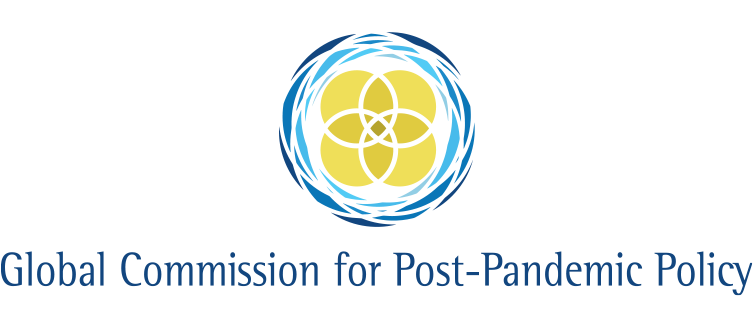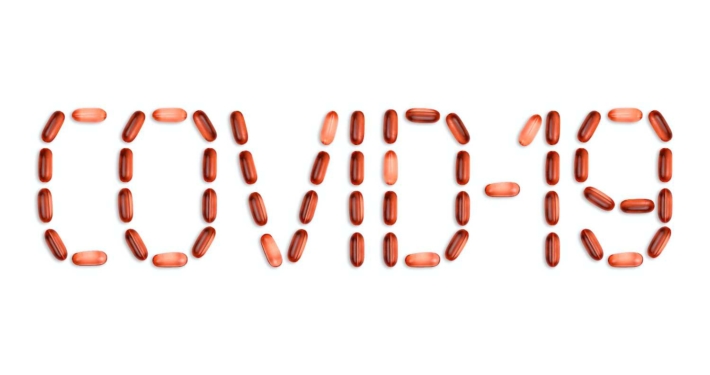The Pandemic, week to April 5th
Health
New Covid-19 cases remain globally high this week, despite easing of numbers in some hotspots such as Brazil and Italy. Several European and South American countries, India, Canada, Turkey and the Philippines are all dealing with surging cases driven by new virus variants, as are individual US states such as Michigan. Slow vaccine rollout is also seeing stubborn infection rates in countries previously able to contain the virus, such as South Korea.
It has been a week of highs and lows for vaccine production. Pfizer and BioNTech have raised their vaccine production target for 2021 by 500 million doses, to 2.5 billion by the end of the year. US regulators have approved new vials for the Moderna vaccine that can contain up to 50% more doses, which should allow Moderna to speed up its vaccine shipments. However, Johnson & Johnson suffered manufacturing setbacks as a batch reportedly accounting for 15 million vaccine doses were spoiled.
Meanwhile, in the UK and elsewhere, controversy around the AstraZeneca vaccine continues. Britain’s medicines regulator has urged people to continue taking the vaccine after revealing seven out of some 18 million Britons to receive the shot later died of rare blood clots. Reaction has varied elsewhere, with German officials again suspending the AZ shot for those under 60 years old, while in Canada the shot has been suspended for the under 55s.
From Israel, a new Covid test has been approved by the EU’s health regulator, which its manufacturer claims should kickstart the resumption of international travel. The SpectralLIT machine does away with complex lab equipment and works by shining a light through samples to give immediate results via their spectral signature. Airport staff armed with the device could provide passengers with test results after just 20 seconds.
In South Africa, a study on 800 volunteers has shown the Pfizer-BioNTech vaccine may be highly effective against the Covid variant that originated in the country. The data have been heralded as a “big deal” because they give the first impression of how effective mRNA-style vaccines like Pfizer’s are against South Africa’s variant, although the sample size remains “not enough to make conclusions about protection”.
In the US, surveys revealed other health issues are being exacerbated by the Covid pandemic. Smoking appears to have been on the rise last year, with fewer users contacting stop-smoking support groups and an unusual bump in cigarette sales. Meanwhile, eating disorders have also been spiking. These findings join other health concerns indirectly related to Covid, including around opioid use, mental health impacts, and delayed surgeries, elective and other.
Economy
In the US, 916,000 jobs were added last month, the biggest gain since last August. While welcoming this “great news”, President Joe Biden warned Americans that “progress we’ve worked so hard to achieve can be reversed” by a new surge in cases. President Biden also this week released the infrastructure plan he intends to propose to Congress, worth about $2 trillion over 10 years, which would include investments in electric vehicles, rural broadband, veterans hospitals and schools, as well as roads, bridges and the electricity grid, and would be financed chiefly by rises in corporate taxes.
In China, the renminbi suffered its biggest drop against the dollar since the US labelled China a “currency manipulator” in August 2019. The currency fell 1.4% against its US counterpart in March, marking a partial reversal from its boom in 2020 when offshore investors flocked to take advantage of China’s rapid pandemic recovery. The shift has also been felt in global bond markets, with some economists foreseeing Chinese bond yields hitting a decade low by the end of 2022. China now has to decide whether to withdraw stimulus from its economy as other countries emerge from the pandemic.
In Japan, business confidence among big manufacturers rebounded in the first quarter to pre-pandemic levels, according to a central bank survey. Companies stepped up capital spending plans as positive signs suggest Japan’s exporters are benefiting from a more widespread global recovery.
In the UK, savings data showed households were putting away more money in 2020 than originally projected — a factor expected to boost economic recovery in 2021 as spending resumes. Excess or pent-up savings now stands at £121 billion, equivalent to close to 10% of total household consumption in cash terms last year, say economists at Investec. The economic recovery in the second half of 2020 was also slightly stronger than expected, according to data from the UK’s Office for National Statistics.
Joining others, Italian central bank chief Ignazio Visco has warned that the biggest threat to the global economy is the uneven rollout of vaccinations, leading to sharply different recoveries for developed and developing nations. Ahead of a G20 summit on April 7, Italy is backing an issuance of up to $650 billion in special drawing rights by the IMF, reallocated by wealthier recipients to give liquidity to developing countries as they recover from the pandemic. However, Visco told the Financial Times: “The main instrument we have at the moment is neither monetary nor fiscal, it is vaccinations.”
Politics
Leaders of 23 countries and the World Health Organization proposed a global pandemic treaty. In a jointly signed op-ed, the leaders compared the pandemic to the end of World War II as a moment to rethink international cooperation. Among measures designed to better “predict, prevent, detect, assess and effectively respond to pandemics” they called for “universal and equitable” access to vaccines and their production, co-operation on “alert systems, data-sharing and research”, and a recognition of the “One Health” approach that connects the health of humans, animals and the environment. Criticism has however pointed to a lack of global solidarity during the pandemic, with the US, China and other powers conspicuous in their absence from such demands, themselves presented through media declarations rather than in policy statements.
Spring holidays and religious festivals are being disrupted for a second year. Easter lockdowns were imposed in several European countries. Italy entered a three-day strict nationwide lockdown to deter Easter travel. In Paris, police officers enforced new restrictions, including a ban on travelling more than 10km. In the Philippines, 25 million peoplein Manila and four other provinces were placed under lockdown in the run up to the Easter weekend. However, in Israel, thousands gathered for Passover and Easter in Jerusalem thanks to the country’s rapid vaccine rollout — though foreign worshippers were absent as a consequence of travel restrictions. In Turkey, a full weekend lockdown was announced throughout the Muslim holy month of Ramadan, which begins on April 12. Meanwhile, the top Sunni Islam authority in Lebanon has issued a statement telling the faithful that receiving a vaccine will not break Muslims’ fasts during the holy month.
In the UK, trials to reopen mass events, including the football FA Cup final in mid-May, are set to include so-called “vaccine passports” — paper or digital documents detailing attendees’ vaccine status or Covid test history. The certificates are attracting controversy and face political opposition, including from 40 MPs inside prime minister Boris Johnson’s own party, and from privacy campaigners, who have described the certificates as “divisive and discriminatory”.
In Kenya, the government has banned private companies from importing Covid vaccines, citing concerns about fake shots being administered. At least one firm has brought in shots of Russia’s Sputnik V vaccine, selling them on at $150 for a double dose. Kenya, which toughened lockdown measures on March 26 following a surge in cases, has started vaccinating its citizens with 1 million doses supplied via the UN-backed Covax scheme.
In North Korea, the Russian embassy in Pyongyang released a statement on its Facebook page reporting a mass exodus of foreign nationals amid shortages of essential goods and medical supplies, and “unprecedented” restrictions on daily life. It is not known whether the communist dictatorship’s decision to seal North Korea from the outside world has prevented any major outbreak of COVID-19, as the regime claims. However, the policy has had other effects such as shops running out of groceries following a decision to almost entirely stop imports in September. North Korea also announced it will not take part in this summer’s Tokyo Olympic Games.
Photo by Unsplash
GCPPP Newsletter
We now publish a weekly newsletter to inform friends and supporters of the Global Commission’s progress and to provide updates when new content is published. Please sign up here:


 Volodymyr Hryshchenko, Unsplash
Volodymyr Hryshchenko, Unsplash
 Adam Nieścioruk, Unsplash
Adam Nieścioruk, Unsplash
 visuals, Unsplash
visuals, Unsplash


